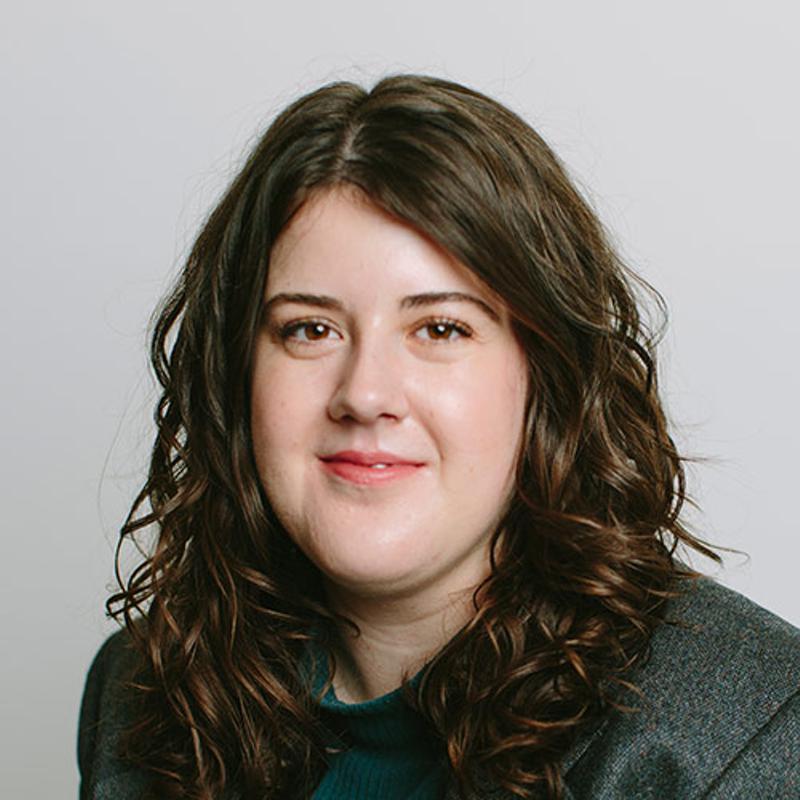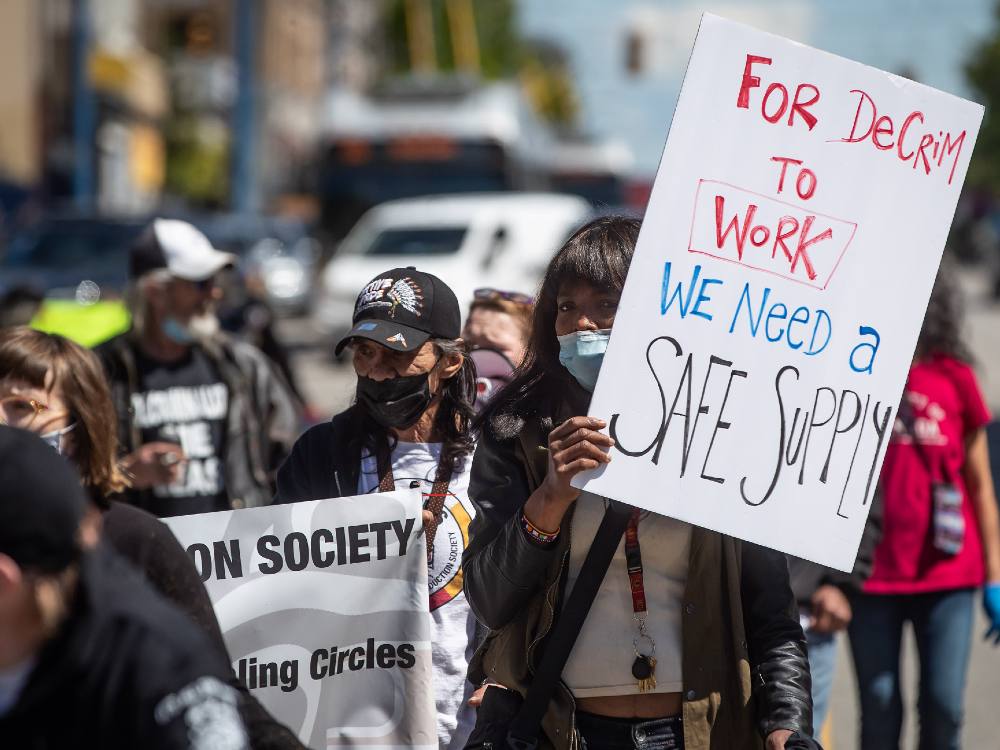People who use drugs are cautiously optimistic about British Columbia’s forthcoming move to decriminalize possession of some drugs, but frontline harm reduction groups across the province say uncertainty about how it will be enforced is hampering their efforts to prepare.
On Jan. 31, B.C. will become the first jurisdiction in Canada to decriminalize possession of small amounts of cocaine, fentanyl, heroin, MDMA and methamphetamine for personal use.
That means anyone 18 and over with less than 2.5 grams total of these drugs won’t face arrest, criminal penalties or having their drugs taken away. The measure does not apply to youth under 18 or people at airports, schools, child-care facilities and military buildings, and does not legalize these substances or their manufacturing and sale.
But drug user rights groups have said the change, made possible by a Health Canada exemption from the Controlled Drugs and Substances Act, doesn’t go far enough towards its stated aim of reducing the harms of criminalization on people who use drugs amid a toxic drug crisis that has killed nearly 11,000 people since 2016.
And it’s causing concern that police checks may increase to ensure people are complying with the measure’s stringent limits.
“There is a lot of uncertainty on this ‘eve of decriminalization,’” said Amber Streukens, a Nelson-based organizer with the Rural Empowered Drug User Network and harm reduction worker for ANKORS West, or the AIDS Network Kootenay Outreach and Support Society West, which serves communities including Nelson, Trail, Castlegar and Kaslo. “The measure is lacking in a lot of ways and what’s going to happen feels unknowable.”
Many of the concerns Streukens is hearing from drug users in her community hinge on how police will judge whether someone has less than 2.5 grams of the five exempted substances, particularly now that the drug supply is so contaminated.
And as the criminalized drug supply becomes increasingly contaminated with substances like benzodiazepines and sedatives, people don’t often know they are using or possessing what’s called benzo-dope, an increasingly common mixture of benzodiazepines and opioids.
Those contaminated substances aren’t included in the exemption. It’s a “glaring oversight,” says Caitlin Shane, a staff lawyer with Pivot Legal Society in Vancouver.
“If government truly believes that decriminalization is in the interest of public health, then the policy should be extended to all, regardless of whether the person knows about the presence of benzos in their supply or not.”
And without knowing how law enforcement will judge substance composition, quantities or whether something is for personal possession, many people who use drugs are worried it will result in more frequent street checks or drug seizures.
“People who use drugs are nervous. Will this change our police interactions?” asked Streukens.
“And people wonder ‘How will they know if my drugs are under 2.5 grams or what they are? Will they believe me when I tell them? Or if I have a scale and baggies to measure my doses so I don’t die, will they think I’m trafficking?'”
Drug seizures or arrests on other charges may also continue, Streukens noted.
The Vancouver Police Department, for example, have previously said they have stopped arresting people for simple possession of small amounts, but The Tyee found that drug seizures continued apace in the Downtown Eastside even when the individual wasn’t arrested.
“Small details really give people a lot of confidence and leverage,” said Streukens, noting relationships with law enforcement in smaller communities are often more complex and intimate than in larger municipalities like Vancouver.
“Things aren’t always as tidy as maybe they should be. People who use drugs want to know their rights and avenues for recourse and to have a safe place to talk about it.”
‘People want clarity’
Amid uncertainty about what police will look for or ask about in an interaction, educating people who use drugs and the entire public about the measure is paramount, said Caitlin Shane of Pivot Legal.
Earlier this month, Pivot developed and printed 1,000 “Know Your Rights” cards to distribute to frontline organizations across B.C. All were claimed in just four days.
“It speaks to the fact that people want clarity,” said Shane. The cards are still available online to print or to use as a phone wallpaper.
Pivot is also planning multiple teach-ins for drug user rights groups, starting this afternoon with the Vancouver Area Network of Drug Users. Interest in holding these sessions virtually with other organizations elsewhere in B.C. has been huge, Shane said.
In Cranbrook, Streuken’s colleagues at ANKORS East (serving communities including Kimberley, Sparwood and Fernie) have been working to share information with their program participants, particularly those who are unhoused or don’t have a phone.
Cranbrook-based ANKORS team lead and harm reduction co-ordinator Polly Sutherland has been organizing information sessions for community members with staff from Interior Health to answer questions.
She worries that misinformation about the measure among people who use drugs and the public will increase stigma, the opposite of Ottawa’s stated goal when it issued the exemption.
“If it’s not done in a way that’s educational and correct, because there’s a lot of myths, misconceptions out there, it won’t bode well,” said Sutherland.
The most criminalized will be least impacted
The low threshold for possession may reflect people who use infrequently or recreationally, but Streukens and Shane, who sit on the province’s core planning table, say it won’t decriminalize people who buy or carry multiple days’ worth due to limited mobility, long commutes or because they buy for friends or partners at the same time. There are also concerns drugs could become more concentrated to stay below the threshold.
They raised these concerns during meetings with the entire core planning table of public health experts, police, advocates, lawyers and people with living and lived expertise assembled by the province to guide its decriminalization request to Ottawa, which began in 2021.
“Those most impacted by the current criminalization will be least impacted by this measure,” said Streukens. She noted that people in rural and remote areas are more likely to buy multiple days’ worth at a time.
A broader decriminalization effort would eliminate a lot of the uncertainty, Shane and Streukens said.
And news that police will hand out referral cards for detox and treatment services for people who want them indicates there is still this “underlying attachment to the idea that drug use is not okay,” said Streukens.
The focus on treatment also doesn’t recognize that not all substance use is inherently problematic, Streukens said. Data from a 2022 expert panel report ordered by the BC Coroners Service shows nearly half of people dying of drug poisonings in B.C. are not considered to have problematic substance use or be addicted.
They say frontline organizations will be listening to drug users to know the true impact of the measure, which is also being independently evaluated by Health Canada over its three-year pilot program.
The true measures of decriminalization will be whether fewer people are having their drugs taken away, going to jail, losing their housing and employment, or custody of their children because they possessed small amounts, Streukens said.
Shane is also keeping an eye on how municipalities and workplaces may introduce policies and bylaws to punish people who use drugs in other ways.
“We’ve had 100 years, five or six generations of prohibition in this country, and I don’t know if one three-year pilot is going to undo that,” said Streukens.
“It’s a large step for a government that has, in all known history, been very focused on prohibition. But it’s not as bold as they’re selling it or as it needs to be.” ![]()
Read more: Health, Rights + Justice, BC Politics
















Tyee Commenting Guidelines
Comments that violate guidelines risk being deleted, and violations may result in a temporary or permanent user ban. Maintain the spirit of good conversation to stay in the discussion.
*Please note The Tyee is not a forum for spreading misinformation about COVID-19, denying its existence or minimizing its risk to public health.
Do:
Do not: